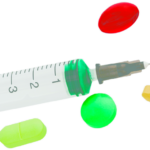The FDA has accepted applications for three new indications for bimekizumab-bkzx, a humanized interleukin (IL) 17A and IL-17F antagonist: psoriatic arthritis, non-radiographic axial spondyloarthritis and ankylosing spondylitis.


The FDA has accepted applications for three new indications for bimekizumab-bkzx, a humanized interleukin (IL) 17A and IL-17F antagonist: psoriatic arthritis, non-radiographic axial spondyloarthritis and ankylosing spondylitis.

The FDA has approved the first interchangeable biosimilars for denosumab.

Devyani Misra, MD, MS, & Jiha Lee, MD, MHS |
SAN DIEGO—Older adults with rheumatoid arthritis (RA) comprise two groups: those who have lived with diagnosed RA since an early age (young-onset RA) and those who have new-onset RA diagnosed at an older age (≥65 years), known as late-onset RA or, formerly, as elderly onset RA.1 Individuals with late-onset RA have more acute and systemic…

A proposal for biosimilar use in the 2025 budget would allow substitution of any biosimilar for its reference product without an interchangeable designation. The hope is to increase biosimilar uptake, with the subsequent potential to increase product “competition, access and affordability.”1 In the 2025 budget proposal, the Biden administration noted that the legal distinction between…

Stephen J. Balevic, MD, PhD, RhMSUS |
Checking blood levels of commonly used disease-modifying anti-rheumatic drugs (DMARDs) has gained widespread attention in the rheumatology community, even resulting in a recent guidance document from EULAR for biologics.1 Although a highly useful tool, drug level measurement in rheumatology is not without challenges; many of our drugs violate the basic principles of pharmacology that we…

In January, the U.S. Food & Drug Administration approved indomethacin in an oral suspension, a generic version of Indocin Oral Suspension. The agency also issued a boxed warning and updated label for denosumab, warning of the risks of severe hypocalcemia in patients with chronic kidney disease.

A Shift in Prescribing Patterns Safety issues prompt discontinuation of tofacitinib By Stephanie Song, MD, & Joshua F. Baker, MD, MSCE Why was this study done? The ORAL Surveillance study highlighted risks of cardiac events, thromboembolism (VTE) and malignancy associated with use of Janus kinase inhibitors (JAKi). We sought to determine the impact of safety…

In an ACR Convergence 2022 session, Robert Spiera, MD, director of the Scleroderma, Vasculitis, and Myositis Center at the Hospital for Special Surgery, New York City, discussed the use of sarilumab as a potential glucocorticoid-sparing therapy in a phase 3 study in patients with treatment-refractory polymyalgia rheumatica (PMR), one of the most common inflammatory diseases…

On Feb. 28, 2023, the U.S. Food & Drug Administration (FDA) approved sarilumab (Kevzara) for the treatment of adults with polymyalgia rheumatica (PMR) for whom glucocorticoids have proved inadequate or who cannot tolerate a glucocorticoid taper.1,2 Sarilumab is an interleukin (IL) 6 receptor antagonist. In May 2017, the FDA initially approved the agent for the…

Katie Robinson |
Patients with polymyalgia rheumatica (PMR) who had relapsed while tapering glucocorticoid therapy were more likely to achieve sustained remission at one year and have a lower glucocorticoid exposure if they were treated with sarilumab (Kevzara) plus a rapid, 14-week glucocorticoid taper than if they received placebo plus a standard, 52-week glucocorticoid taper. This is according…